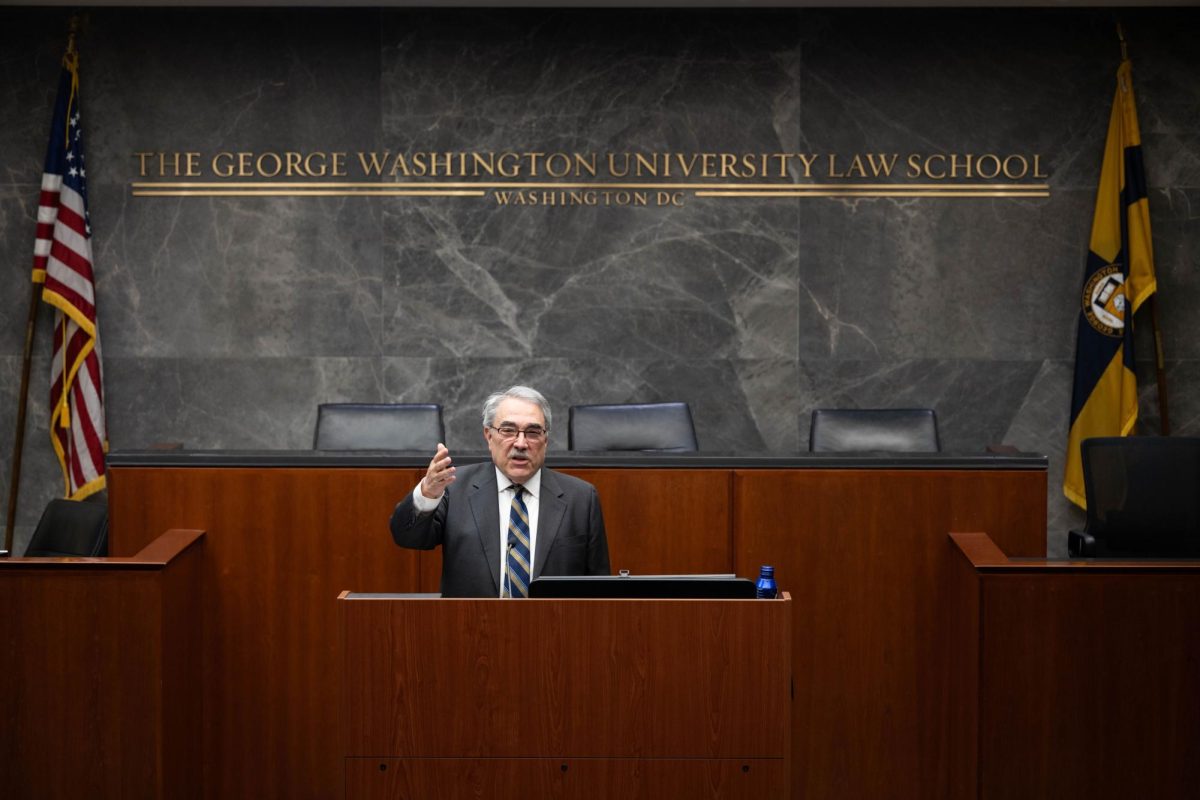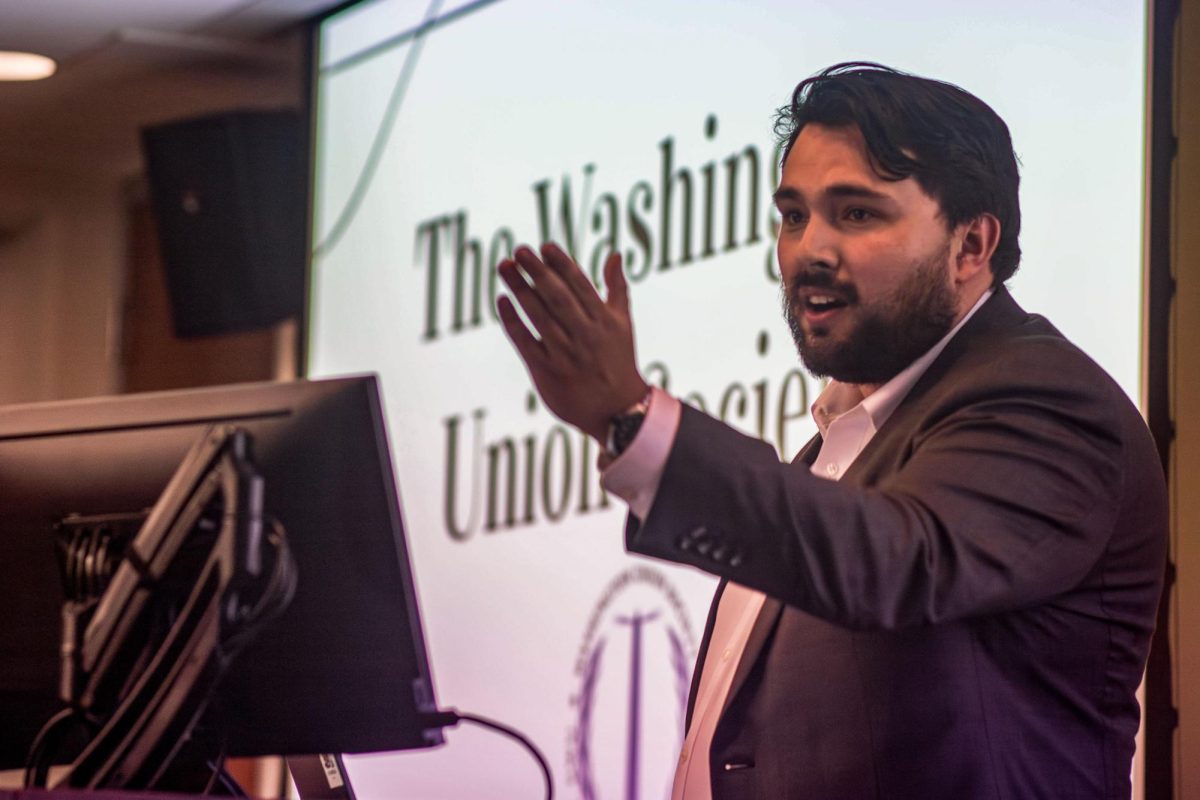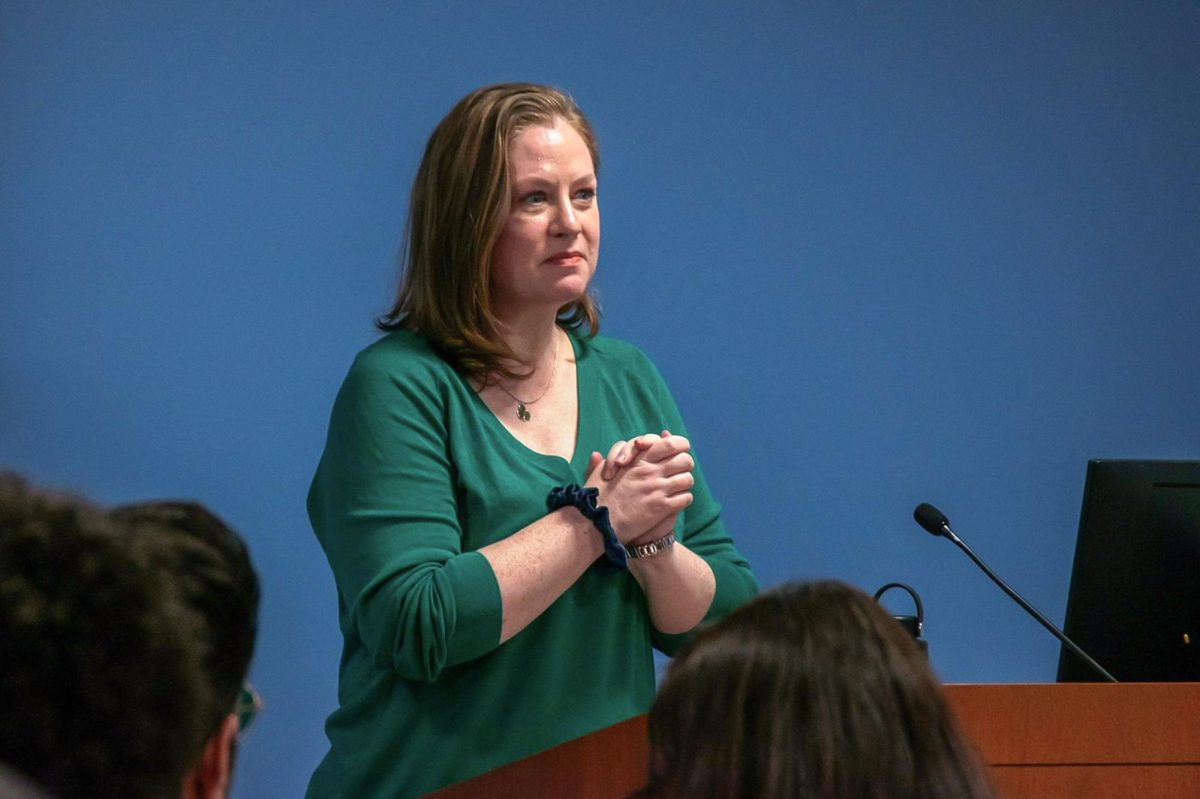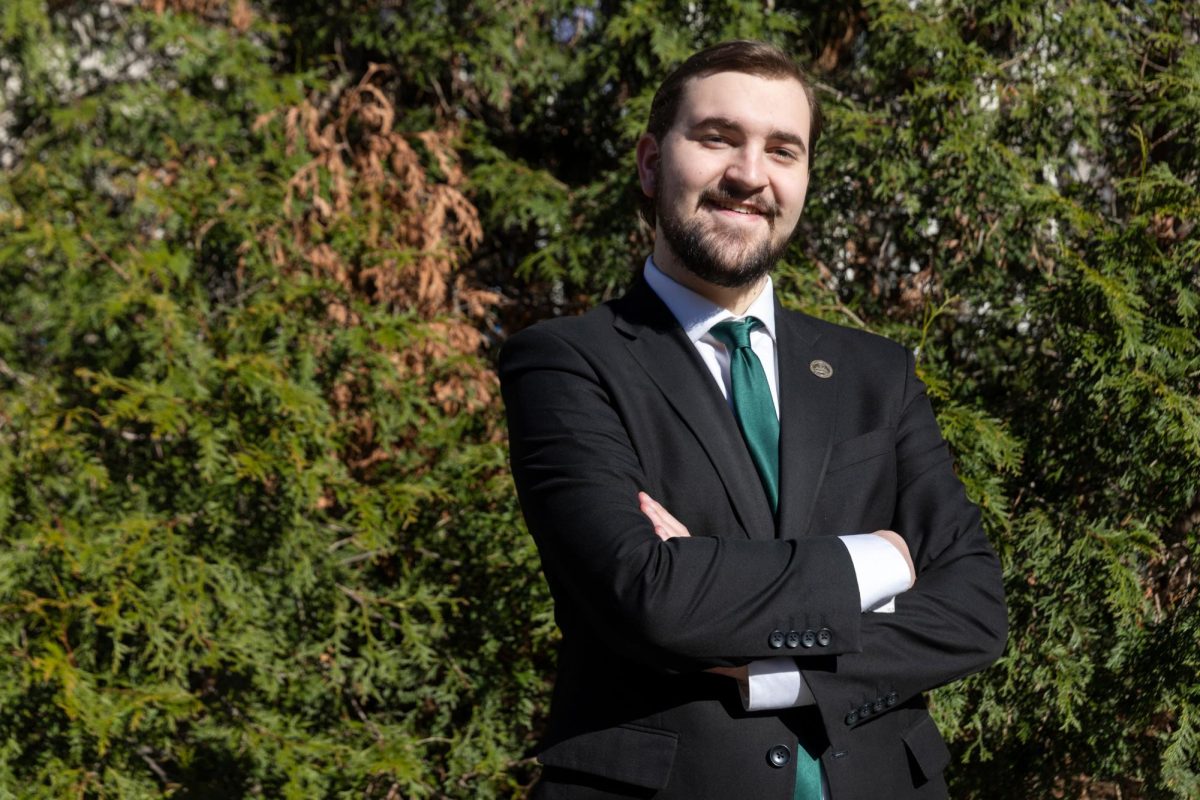A former U.S. representative discussed landmark civil rights legislation and court cases at the GW Law Jacob Burns Moot Court Room on Tuesday.
G.K. Butterfield, who served as the representative for North Carolina’s first congressional district from 2004-22, discussed the activism that elicited the Civil Rights and Voting Rights acts and sparked legal debate leading up to Brown v. Board of Education. The conversation with GW Law Dean Dayna Bowen Matthew was hosted by the GW Black Law Students Association and GW Law Student Bar Association.
Butterfield said his father would go from door to door in his hometown of Wilson, North Carolina, every Saturday in the early 1930s to explain voting restrictions, such as literacy tests, to Black residents and prepare them to register to vote. Butterfield said his father stopped his efforts after individuals threatened his life if he did not discontinue his work.
Butterfield said his father halted his efforts to register Black voters, but returned to voting advocacy in the 1940s. He said, with the help of his father’s activism, the ratio of Black to white voters in Wilson’s Ward 3 had climbed from 5 percent Black and 95 percent white to a 50-50 split, which inspired Butterfield to pursue politics.
“Because of that, I developed an interest in politics, I developed an interest in law,” Butterfield said.
Butterfield received his law degree from North Carolina Central University in 1974 and then practiced law throughout North Carolina, handling several voting rights lawsuits in the state. He served as Resident Superior Court judge in the first judicial division from 1989-2001 and then as an associate justice of the North Carolina Supreme Court from 2001-02.
Butterfield said through conversations with the late representative and civil rights activist John Lewis (D-GA), he learned the first-hand story of the push of activists to pass the Voting Rights Act, which outlawed discriminatory voting practices adopted in many southern states after the Civil War, and the Civil Rights Act.
Butterfield said after the passage of the 1964 Civil Rights Act — which prohibited public discrimination, integrated schools and other public facilities and made employment discrimination illegal — President Lyndon Johnson invited Martin Luther King Jr. to the White House so he could formally thank King for his work. He said King thanked Johnson for his kind words and immediately pivoted to the Voting Rights Act, which Johnson said his Republican Senate colleagues opposed.
“Then Johnson said to Dr. King, ‘No, I don’t think you understand the predicament that I am in as president,’” Butterfield said. “‘None of the senators that I served within the Senate for years and years and years speak to me right now.’”
Butterfield said Johnson and King then engaged in an exchange where Johnson insisted he had to prioritize Medicare and Medicaid above the Voting Rights Act. He said, despite his initial pushback, Johnson privately supported the Voting Rights Act which he expressed as King left the Oval Office by winking at King and asking King to pressure him and the federal government to approve the Act with protests, like the 1965 Selma to Montgomery March that followed King’s meeting with Johnson.
Butterfield also said the Brown v. Board arguments in 1954 — which overturned the 1896 case Plessy v. Ferguson that permitted racial segregation in public facilities as long as they were “separate but equal” — spurred debate among legal scholars at the time regarding whether to enforce the separate but equal doctrine or to dismantle segregation entirely.
“That was a big debate among Black lawyers – whether or not we are just going to accept Plessy as being the law of the land and are we going to insist on equal accommodations, or are we going to try to dismantle it?” Butterfield said. “And so, in the early years of Charles Hamilton Houston, they embraced the idea of enforcing separate people.”
Butterfield said the legal team that would represent the plaintiff in Brown v. Board, which included lead counsel Thurgood Marshall, found five desegregation cases across several Southern states concerning schools with inadequate learning conditions for Black students that all lost in their respective district courts. Butterfield said the team determined the case against the Board of Education of Topeka, Kansas, had the most evidence to ensure victory, and so they argued Brown v. Board before the Supreme Court.
“They won it 9-0, 9-0 in 1954, the court ruled that separate but equal is no longer the law of the land,” Butterfield said. “Because of Brown, there has been a gradual desegregation of public education all across the country.”










